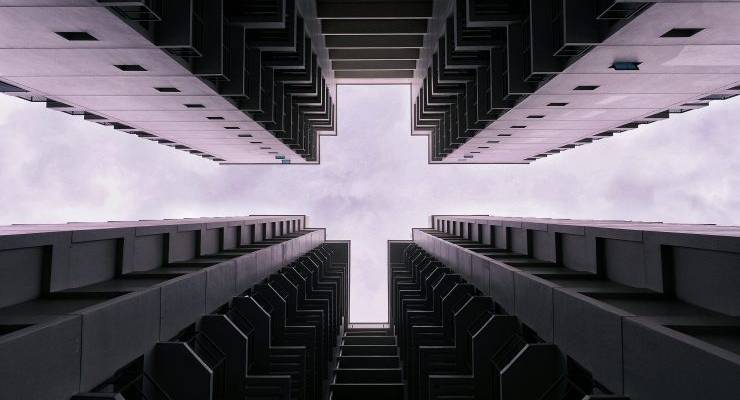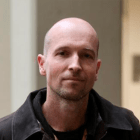
Last week WA tenant advocate Jesse Noakes noted the structural issues he sees within the state’s Housing Authority. Now, he shares the story of those who suffer the consequences.
Much of my work as an advocate involves trying to bridge the gap between my Aboriginal clients and the machinery of government. It’s like translating between different languages. Except, in this instance, the words are the same; it’s the context and weighting behind them that is often vastly different.
It often takes a bit of telling to explain why someone is physically incapable of paying the water bill on time or preventing property damage. The answer involves more than a century of government policy, social exclusion and the deliberate destruction of family, culture and worldview.
Most of us know all this intellectually. But it doesn’t really mean anything until you sit down and listen as a person looks you in the eyes and, with complete openness, details the most appalling traumas, one after the other, until it seems barely believable that a single person could experience all that and still be here, speaking through it.
Maria Williams was born two days before the moon landing in July 1969. She looks older.
Maria was removed from her mother as a baby and taken to the Sisters of Mercy and then Sister Kate’s orphanage in Victoria Park in Perth. Her siblings were taken too, but she was separated from them within the institutions. When she was older, she was transferred down to Esperance on the far south coast of Western Australia. Her little brothers went to Kalgoorlie, six hours east of Perth.
Sister Kate’s orphanage is notorious in WA as an appalling example of the horrors routinely visited upon defenceless Aboriginal children in state custody. In recent years, Maria has relived that nightmare by making submissions to the Royal Commission into Institutional Responses to Childhood Sexual Abuse.
“Mate, it took me over 30 years to get over what happened,” she told me one recent morning. “I’m scarred for life. My sisters are the same, brothers as well. It’s very traumatic. I still live with that, and the torment.”
Maria has been homeless for 14 years, since she lost her last WA public housing property due to arrears that she has since repaid. For half that time, she lost custody of her own six kids, who’d been homeless with their mother.
“They’re all adults now, and they’ve got children. My lifestyle has been repeated through my children. The failure has repeated itself.” She has grave concerns for her grandchildren, too, several of whom have now also been removed.
Maria is lucid and forceful as she outlines her systemic critique of what the state has done to her family. “We didn’t get any support as a family when we were children, and now we’re not getting the ongoing support to raise our own kids. The government has failed us right across the board.”
Over the past two decades she has lost around 40 close family members, mostly long before their time. “We’re all human beings,” she says. “There have been too many deaths.”
Maria’s younger sister Melinda is homeless too. She also looks older. In 2012, her 21-month-old daughter died. She’d been taken from her parents by the Department for Child Protection.
The little girl died of cardiac arrest after falling from a couch at her foster carers’ house. The WA coroner found that her death was the culmination of a string of traumatic injuries, and criticised the department for “a lack of ongoing supervision, treatment and care”. Melinda says the decision to turn off her granddaughter’s life support was taken by the department without her permission and with no allowance for cultural requirements.
She subsequently launched a compensation claim against the department. Seven years after the child’s death, the case is unresolved. Two other children remain in state care.
One morning, a few weeks back, Maria came into our office looking for help. Her 18-month-old grandson had been taken into state foster care while Maria’s daughter served a short prison sentence in Kalgoorlie. Maria had just learnt that on the weekend he had died. She was still unsure of the circumstances when I saw her in my office.
She wanted help contacting the state coroner to formally identify her grandson’s body and begin making funeral arrangements. She also wanted to write a letter to government ministers informing them of the long, long chain of decisions and policies that had led to this latest family tragedy. “It’s a repeat,” she said.
I composed it with her, and she walked back out on to the street. I’ve just checked the date of that letter. It was July 18, 2019. Maria’s 50th birthday.
Survivors of abuse can find support by calling Bravehearts at 1800 272 831 or the Blue Knot Foundation at 1300 657 380. The Kids Helpline is 1800 55 1800.
Jesse Noakes is a freelance writer and tenant advocate from Fremantle.








Not only but also, Jesse, but first; thank you for your good work.
Fighting against a well paid bureaucracy as well as political indifference places you in an unenviable bind.
To add to the 14,000 people on the Housing wait list, there are those who have bad tenancy histories and who have had their applications refused, and the many more who have seen the statistics and decided not to make an application due to the extremely long periods between making such and the likelyhood of accommodation becoming available.
Instead, people who are eligible are simply not placing themselves on the waitlist, remaining, instead, in short term tenancies of no longer than 12 months and at risk of becoming homeless at the whim of the commercial market, which is itself devoid of long-term affordable housing.
Indigenous people really do get the ‘short straw’, but more generally anyone in impoverished circumstances is also likely to find themselves without a roof and/or sufficient funds to both eat and pay rent.
In the eyes of those who ‘have’, the ‘have nots’ are unworthy of a fair portion of the Nation’s wealth, even when they are the original inhabitants and/or have previously contributed to the general benefit of the country’s community.
Mea culpa; I’ve been working in homelessness for two decades. While there are some very good people in the welfare arena, there’s a tendency to ignore the plight of individuals and specific groups the higher up the management chain you go, and an increasing tendency to put pragmatism before ethics. I’ve seen egregious decisions made by people who should have known better. By the time you get to Government, the poor – and the especially the non-white poor – become numbers and statistics. In terms of power, the greater the distance from the issue, the less you are affected.
Having lived next door to an Aboriginal Housing Commission house for more than a decade, and seeing the various crises and trauma different members of the family went through, I can understand why maintaining a house is not a priority in times of pain and struggle. When the house went up for auction by the AHC a few months back and before the renovators moved in I walked through it – it made me cry to see the swarming cockroaches, the smell of cat piss, the mouldering kitchen and bathroom, and the nests of red back spiders out the back that they’d been living amongst. Good on you Jesse for trying to make people’s lives better.
To read this , is just so sad. It brought tears to my eyes, that some of our Australian people suffer so much.
Poverty plays such an immense part, because they don’t have the funds to house themselves and fight for their cause and their children.
To add insult to injury, we look at the inequity of income within this country. Not only the inequity, but the perks that go with the higher inequitable incomes.
Now they are talking about broadening the base of and possibly increasing the GST. This will make it even harder for lower income people to manage.